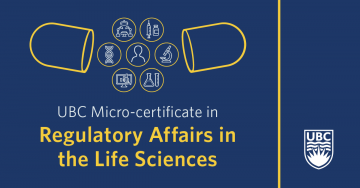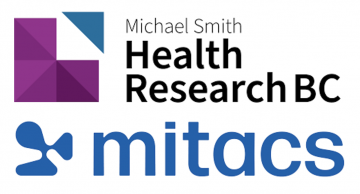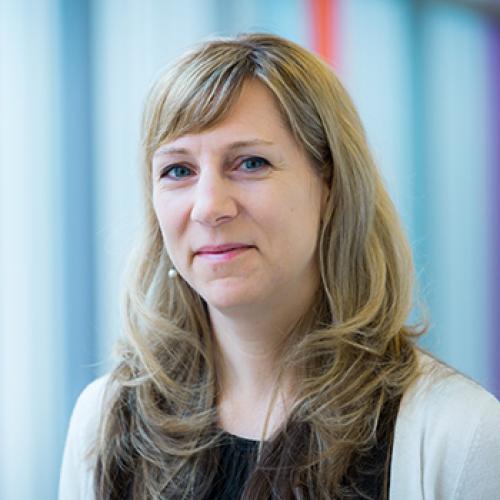March 19, 2024
The Rapid Response project is designed to provide seed funding to catalyze novel, high-risk, high-reward translational research that accelerates the development of therapeutics or tools for neurodegenerative diseases of aging (NDAs).
- Therapeutics should address unmet needs in the prevention, treatment and/or symptomatic management of NDAs.
- Tools should address challenges in translational research to accelerate the development and/or clinical implementation of therapeutics for NDAs (e.g., biomarkers, drug delivery systems). Projects covering only the discovery/identification of a tool are considered out of scope.
- Projects should also have preliminary data to support the hypothesis and feasibility of the project.
Funding Available
- Up to $300,000 over a 18-24 month term
Key Dates
March 14, 2024
The ATM brings together leading scientists to teach novel regulatory science methodology that supports bringing new health innovations to patients sooner. In a recent live session, the ATM facilitated an engaging discussion on novel approaches to the design of clinical trials, drawing significant enthusiasm from learners in the ATM’s Regulatory Sciences and Health Economics course.

The session was presented by Dr. Jay Park, who is the Scientific Lead and Founder of Core Clinical Services, an Assistant Professor at McMaster University and a Methodologist with expertise in HEOR and clinical trial designs.
Dr. Park addressed the inherent limitations of conventional approaches by advocating for adaptive designs that allow trial modifications based on interim data analysis. This approach introduces a dynamic element into clinical trials, enabling adjustments to sample sizes, trial arms, and other parameters in response to accumulating data, thereby enhancing trial efficiency, ethical standards, and resource allocation.
The presentation covered various adaptive design types, including sequential designs, sample size re-assessment, and response adaptive randomization, each tailored to specific trial needs and outcomes. Emphasizing the intricate planning and collaboration required, he noted the necessity for comprehensive pre-trial simulations, adherence to predefined standards, and transparent reporting guidelines to maintain the scientific integrity and regulatory compliance of adaptive trials. Despite the complexity and increased resource demands of implementing adaptive designs, they have the potential to transform clinical research by offering more flexible and efficient methodologies for exploring medical interventions.

Following the session, the ATM received an influx of positive feedback. Many learners emphasized how eye-opening the topic was, and appreciated the exposure to novel clinical trial methods which are aiming to improve patient care in a more ethical and efficient manner, without sacrificing quality of data. Students also noted that the session provided them with a realization that regulatory agencies are among the various groups that would need to commit to using this design of clinical trials. The ATM thanks Jay Park for the engaging presentation!
If you are curious to learn about the Regulatory Sciences and Health Economics course and the Regulatory Affairs in the Life Sciences (RALS) Micro-credentials, visit the ATM Education page here.
March 1, 2024
UBC’s School of Biomedical Engineering (SBME) is excited to announce the call for applications for SBME Innovates 2024 intake. This incubation hub is designed for early-stage life sciences ventures, offering FREE dedicated wet laboratory space, equipment, building services, and more.
SBME Innovates is a Life Sciences Incubator designed to accelerate biotech translation from bench to societal impact. Located in UBC’s Biomedical Research Centre, it’s a fully equipped wet lab space for early stage companies with big ideas. Ventures are hosted for 18-24 months, provided access to dedicated wet laboratory space, equipment, and building services, free of charge. This residency also connects ventures with the SBME community while giving them access to SBME communications channels to help bring awareness to their work.
 Wet Lab Facilities available to each venture:
Wet Lab Facilities available to each venture:
- 3 benches sized 200 x 85cm
- 1 CO2 incubator
- 3 shared biosafety cabinets
- One dedicated shelf in -80C
- 1/2 of a full-size -20C freezer
- 1/2 of a full-size 4C fridge
Eligibility
- SBME Innovates welcomes applications from life science ventures within the UBC community with a focus on human health impact.
- A referral from e@UBC, CDL/Sauder, or SBME is mandatory at the time of application.
Key Dates
- Virtual Information Session
- Finalist companies notified
- Finalists present to the Adjudication Committee
- Onboarding of new ventures into SBME Innovates
February 29, 2024
Congratulations to ATM Faculty Member Dr. Jonathan Loree, who is a recipient in round one of the inaugural 2024 BC Cancer Clinician Researcher Start Up Competition.
This competition will help facilitate stand-alone research projects for clinician researchers at BC Cancer that will support future grant or investigator-initiated studies to be funded by other organizations. The ATM is pleased to see support made available for clinician researchers, who play an integral role in the translational medicine pipeline. Of the 13 successful applications, 9 were awarded to early career researchers, demonstrating the high-calibre of talented clinician researchers in BC Cancer.
 Clinician Researcher: Dr. Jonathan Loree
Clinician Researcher: Dr. Jonathan Loree
Project Title: Liver transplantation in metastatic colorectal cancer (CRC) – a pilot study (Prometheus) and correlative analysis characterizing tumour heterogeneity to inform ctDNA assays in CRC.
Description: Colorectal cancer is the second most common cause of cancer death in North America. If detected early, it can be cured by surgery. However, when detected later the cancer can spread, or metastasize, to other organs – most commonly the liver. Some patients can undergo surgery to cure metastatic colorectal cancer but this is not always possible (unresectable). Liver transplant is a potential alternative treatment for unresectable colorectal cancer in the liver.
This pilot, small-scale study aims to collect the information needed to plan a future, large-scale international trial of liver transplantation in CRC. The goals of the pilot study are to assess patient outcomes, patient safety, patient interest, and the ability to add patients to the trial in a reasonable time-frame.
To learn more about Dr. Loree and his research, visit the ATM Faculty Member page, and read his ATM Member Spotlight Interview. Information about the other successful projects of this competition can be found here.
February 24, 2024
The Michael Smith Health Research BC-Mitacs industry-based program supports graduate students and postdoctoral fellows across British Columbia to gain experience working within BC’s life sciences sector.
Through Health Research BC’s partnership with Mitacs, the program offers industry-based placements through Mitacs Accelerate (for master and PhD students) and Mitacs Elevate (postdoctoral fellows) programs.
The Accelerate and Elevate programs enable trainees to apply their research knowledge and expertise to address complex challenges by contributing to a research project with a life sciences company in need of high-level expertise. Elevate has an additional professional development curriculum that prepares postdoctoral fellows for success as leaders in research and industry.
Accelerate Award Details

- Master & PhD Students
- Term: 8-24 months
- Maximum funding: Up to $90,000 per 24-month term
- Maximum company investment: $22,500 per 24-month perm
Elevate Award Details
- Postdoctoral Fellows
- Term: 12-24 months
- Maximum funding: Up to $129,000 per 24-month term
- Maximum company investment: $30,000 per 24-month perm
Key Dates
- LOI Deadline: 1 December 2024
- LOIs are accepted on a rolling basis
- Full Application Deadline: 20 December 2024
- Notice of decision: February 2024 – March 2025
- Anticipated start of funding: 1 March 2024 – March 2025
Are you interested? If so, please access the full application details and instructions, as well as eligibility, here.
February 20, 2024

The Academy of Translational Medicine is pleased to announce that $3,137,050 in funding from the CIHR Project Grant: Fall 2023 competition has been awarded to 4 projects whose principal investigators are part of the ATM Community.
These 4 projects represent 9% of the 46 successful projects led by UBC Faculty of Medicine researchers (the 46 projects totalled $31.3M), with 3 projects being Project Grants, and 1 being a Priority Announcement. Of the 4 successful grants, 1 was awarded to Director of the ATM Dr. Poul Sorensen, and 3 were awarded to ATM Faculty Members Dr. Zachary Laksman, Dr. Dena Shahriari, and Dr. Emily Brigham.
Dr. Poul Sorensen, Director of the Academy of Translational Medicine, shares the following message:
“I am delighted to see that a number of successful CIHR applications in the most recent competition were awarded to ATM Members. By spearheading pioneering biomedical research, the ATM Community continues to spearhead transformative advancements, with the promise to deliver significant benefits to patients in the future, while elevating the threshold for innovation emerging from the ATM.”
ATM-led Projects




The Project Grant: Fall 2023 competition awarded a cumulative 374 research grants plus 6 bridge grants (~$325M total), 150 priority announcement grants (~$16.4M total) and 14 supplemental prizes ($450k total).
Full announcements:
February 14, 2024
The article was written to highlight February 11th, which is International Day of Women and Girls in Science. The other female leaders in The Centre for Blood Research community who were highlighted alongside Dr. Brown include Dr. Agnes Lee, Dr. Hayley Merkeley, Dr. Hélène Côté, Dr. Karen Cheung, and Dr. Natalie Strynadka. As stated by The Centre for Blood Research (CBR), “The CBR is proud to have dedicated, passionate, and driven female leaders that students, trainees, and staff can learn from”.

In this interview, Dr. Kelly Brown discusses her research, her biggest accomplishment, and whether she faced any challenges in STEM as a female. Dr. Brown also mentions how she came to consider herself a translational researcher, and how her research uses a bench-to-beside approach.
Research in my laboratory is done in partnership with clinicians, patients, and advocates towards a common goal of providing the best evidence-based care for children with vasculitis and other rheumatic diseases. My team uses a bedside-to-bench approach to discover and validate quantifiable biomarkers that can aid with diagnosis and treatment decisions for affected children. Our initiative on childhood-onset vasculitis was supported by a multi-year CIHR grant that enabled the largest collection of data and samples from (> 400) children with vasculitis – which is remarkable given that there are only 1-2 new diagnosed cases per year in BC!
Congratulations to Dr. Brown for her feature. Read her answers and the full article here.
Did you know that the ATM Member Community includes many female faculty? Learn more about our Members here



 Wet Lab Facilities available to each venture:
Wet Lab Facilities available to each venture: Clinician Researcher: Dr. Jonathan Loree
Clinician Researcher: Dr. Jonathan Loree





